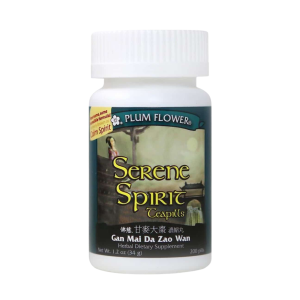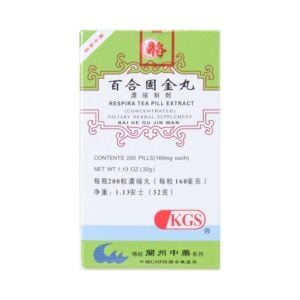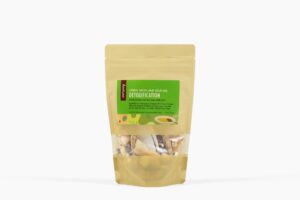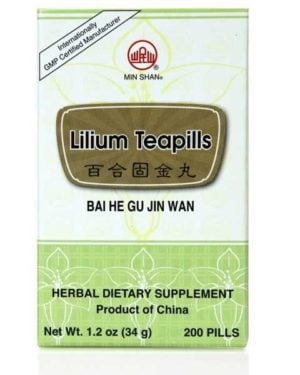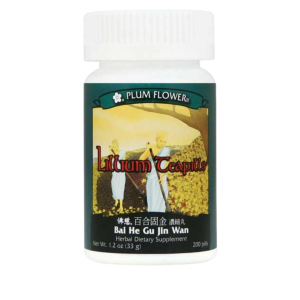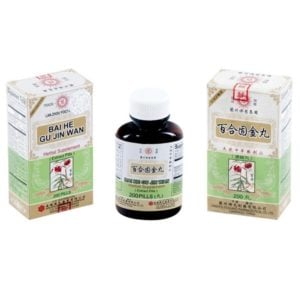Bai He
English Name: lily bulb
Pharmaceutical Name: Bulbus Lilii
Medica Category: Yin-Tonifying Herbs
Properties: Bai He enters the Lung and Heart channels; it is sweet in nature and cool in temperature.
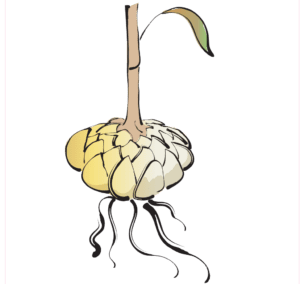 What is Bai He?
What is Bai He?
The Chinese Herb Bai He is the fleshy bud scales of lily bulb. In the traditional practice of TCM, Bai He was derived from the Hong Kong (or Brown’s) lily—Lilium brownii, a species of lily native to parts of China, Hong Kong, and other parts of Southeast Asia. Although it is still used medicinally, more commonly the tiger lily (L. lancifolium) is now cultivated in most parts of China as the herb of commerce. A third species, L. pumilum (or coral lily) is native to Siberia and the North of China and is also considered a standard medicinal species.
Lily bulbs are sweet and often consumed as food in the summer (as they are moistening and refreshing)—they can be eaten fresh, cooked into porridge or congee, cooked in sugar water (as a treat), or ground into flour for other cooking purposes. For medicinal purposes, lily bulbs are harvested in the fall and can be used fresh (as a topical or in the form of food) or dried so that they can be decocted with other herbs in formula.
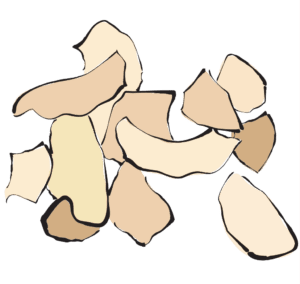 Traditional Chinese Medicine (TCM) Therapeutic Actions of Bai He
Traditional Chinese Medicine (TCM) Therapeutic Actions of Bai He
Cool in nature and mild in its action, Bai He moistens the Lung and tonifies qi to address chronic dry cough with shortness of breath, dyspnea, and scanty, difficult to expectorate sputum (that may be streaked with blood). Stir-frying Bai He in honey strengthens this action. See the formula Bai He Gu JIn Tang—Lily Bulb Decoction to Preserve the Metal for further information on how Bai He benefits Lung yin.
Bai He nourishes Heart yin and clears Heart heat to calm restless shen (spirit) that manifests as difficulty concentrating, disorientation in speech and action, insomnia, restlessness, and palpitations. Secondary symptoms that may present are a bitter taste in the mouth, dark, yellow urine, and a thin and rapid pulse (i.e. all heat signs).
Bai He is used in China to harmonize the middle jiao and ease pain associated with Stomach yin deficiency and is often used in the late-stages of atrophic gastritis, ulcers, and stomach cancer to relieve pain.
–safety/clinical notes:
Contraindicated for persons with deficiency of the Spleen and Stomach, diarrhea, or loose stools.
Contraindicated for cough due to wind-cold or phlegm accumulation.
Bai He has a potential sedative effect and should be used with caution by those operating heavy machinery.
Products Containing Tag: Bai He – Lily Bulb – Bulbus Lilii
-
Bai He Gu Jin Wan (Respira Teapill) – Lanzhou Traditional Herbs (KGS)
Add to CartStarting at $7.89
-
Chinese Herbal Soup and Broth Mix For Detoxification or “Yeet Hay” – by root + spring
Add to Cart$21.95
-
Min Shan – Lilium Teapills (Bai He Gu Jin Wan)
Add to Cart$20.13
$26.50 -
Plum Flower – Lilium Teapills (Bai He Gu Jin Wan)
Add to Cart$24.93
$32.70 -
Solstice Medicines (Ci Brand) – Bai He Gu Jin Wan
Add to Cart$11.99

